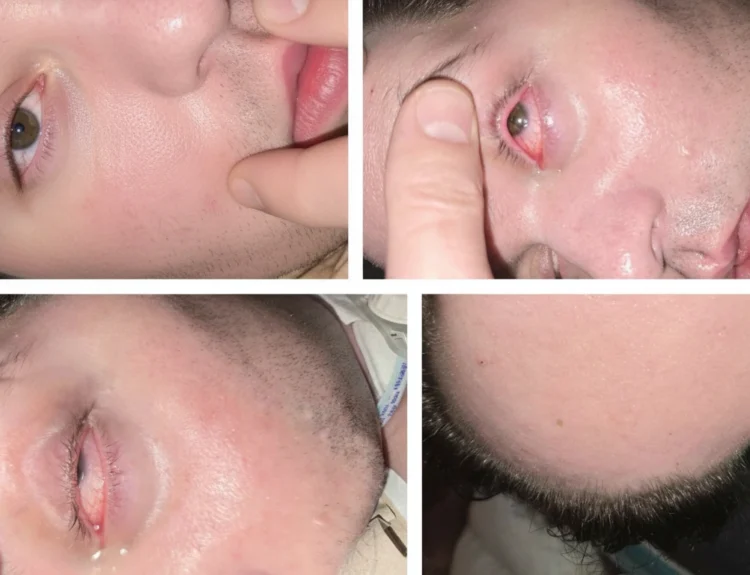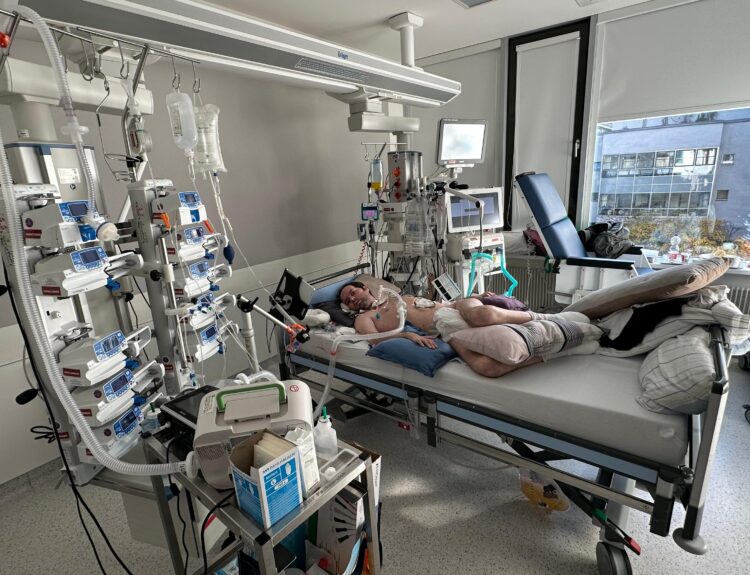Today, for a change, I have no complaining about my care service and no whining. Quite the opposite. Today I want to tell you something from the real life of an ALS patient. Something you won't find in any textbook. Why no one writes about such things? Good question. Probably because it doesn't make any money and it is not so trivial for an ALS patient who is paralysed from the jaw down. I try very hard to write in prose and to make my texts compact and entertaining. Nevertheless, at times I spend 14, 15 or even 16 hours a day in front of my blog writing. Who else but me would see any point in that if you don't get paid for it?
Fortunately, I enjoy the luxury of having built up enough myself in my life to permanently secure the financing of my life. So I can continue to do what I have been doing all my life. Namely, what I want to do, as I see fit, and - the very crucial point - what gives me pleasure. Writing, oh yes, I have always enjoyed that almost as much as talking all the time.
Today's topic: Movement, feeling, sensation of pain.
I am always struck by how frail people think I am. When I look at photos of myself, it doesn't surprise me. It looks pretty crappy.

I think it is all the more important to explain what I feel and how exactly. Even though I have no contact with other ALS patients - I don't define myself by my disease and have no interest in joining any self-help groups - I still believe that I can speak for most similar cases here. Or can write better said, er, written. Wink wink.
First of all, it is important to know that the paralysis symptoms that occur with ALS only extend to those nerves that are responsible for motor function. In other words, I feel and sense everything, but can't move anything. That is totally abstruse. You have to take a moment and think about what that means. Then you already know a lot about ALS.
Voluntary motor activity is basically everything that I should be able to consciously control in the musculoskeletal system via my brain. For example, lifting my feet when walking, moving my fingers when writing or blinking my eyes. Typically, it starts in just one limb and then gradually spreads to the rest of the body. Or, in so-called bulbar ALS, it would start at the head and move downwards.
For me, it started on the toes of the right foot. This is followed by the right foot itself, the right leg. Already there, the typical appearance of ALS becomes apparent. I feel everything. Every fasciculation of the lower legs and later also of the thighs. Cramps are particularly severe because they occur every day, or several times a day, and the sensation of pain remains unchanged in ALS.
For me, the left leg came next, followed by the abdomen, stomach, torso, chest and neck. So by now I am a "tetra". Paralysis of all four extremities, known in the trade as tetraparesis.
And then, just when you start to get your life together as a Tetra, your care provider terminates you because you don't bring as much profit as a coma patient lying in one of your shared flats with ten other patients. Can't complain. This hurdle is also overcome. And then, for me, came the neck, the lower jaw, lips and tongue. That's where I am now.
It looks similar with the unintentional or unconscious and uncontrollable movement. You just don't really notice it. After all, you can't control your heartbeat or breathing anyway, so you probably wouldn't notice if it wasn't working so well. At the moment when you are on the ventilator 24/7, you probably have to have unusually good self-awareness to be able to feel a change in the breathing muscles.

The really exciting story, and in my opinion a very, very important element of ALS, is that sensory nerves are not affected. I feel everything: I feel the women at my side as well as the dog that has once again chosen the best spot. If I am tickled on the feet, it may be legally considered torture. Because, as I said, I feel everything - including when you tickle me - but I can't physically defend myself. Isn't that right, dear Geli? Wink smiley.
A big problem can be that I feel everything. Pay conscious attention to what you do with your hands all day long. How often you touch your face somewhere, scratch your head. Or somewhere else on your body. Another classic would be the mosquito that makes itself comfortable on your arm in the summer. I feel the mosquito, its fine legs on my own skin. And then comes the part that is almost of academic interest again. What you don't normally know, because you would have moved or struck long ago. I feel the proboscis stinging me and then from there on nothing. I think they somehow have an anaesthetic on their trunks, I read something about that.
Let's move on to the really unpleasant things. Calf cramps. Even better, cramps of the foot muscles. Until then, I didn't even know that you could have a cramp in your foot. I was taught better. And how you can have cramps in your foot. You especially enjoy them when you are physically unable to move. Neither the cramping foot, nor the hands to do anything about it.
And yet, again, there are moments when pain is the only thing that saves me from worse. Unlike a paraplegic, I can feel very well when I am sore. So when I get a bedsore, it wasn't because I didn't ask for positioning. In fact, the daily pain on the two "bumps" (bones) sticking out at the back of my hip quickly become unbearable. During the day, I would ring every time I stepped on them. Only when I realise that my carer doesn't understand what we mean by keeping skin areas at risk of sores free, only then do I save myself the constant begging. Or if I myself have to wait half an hour for a Whatsapp massage, then I'd rather find myself with a small decubitus right away.
Like this. There's one more thing I've already explained in another post. But it is unfortunately more topical than ever. So I'll give it another try. What doesn't work for me is the motor function. For example, I am unable to control the abdominal muscles or any other muscles in the lumbar region. I can't tense my stomach. As a result, I can't really - let's call it by the word - take a shit without helping myself. Every two days I take Movicol, which is mainly an emollient and also a laxative. For the actual business I then also need something. Either, if there is an "urgent need", then a syringe of Mikrolax for enema is often enough. Otherwise, Dulcolax in the form of suppositories is needed. This almost always works, but can sometimes take two hours.
The crux of the matter, which some nurses don't seem to understand, is that I still feel everything. I need aids to be able to empty my bowels, yes. But when something comes, I feel it very well.
There is really no reason - but really so absolutely and totally no reason - to uncover me before my visit without being asked and to rip my nappy open before I can even say a word. The highlight is then the solemnly proud declaration of the new findings to my visitors. In other words, the statement about whether the nappy is still clean or not. In any case, I will continue to comment on this with a frustrated "I know". Since that has no effect, I will try it in future with
"Tell me something I don't know yet. ".
Maybe this will fly.
Of course, practically everyone knows that I wear a nappy anyway. But do you have to serve that to every one of my guests on a silver platter? Crap, damn it. I didn't mean to complain about my nursing service. But he really does provide a prime example of how it shouldn't be done on every occasion. Knowing that I'm repeating myself, my own carers, of all people, can't understand the clinical picture.
Well, that's how it is. That's ALS.







1 Comment
Sabrina
3 years agoDear Patrick,
it's time for my 1st comment!
As you know, I follow your blog as a loyal fangirl almost daily by now!
I read it with great enthusiasm, but also recurring horror and absolute bewilderment!
But I really like your open writing style and your humour (despite everything) and I think it's just great that you write everything down!!!!
But I just wanted to write about today's entry:
"What a beautiful picture of you!"
Best wishes and have a good week, see you next Monday,
Sabrina